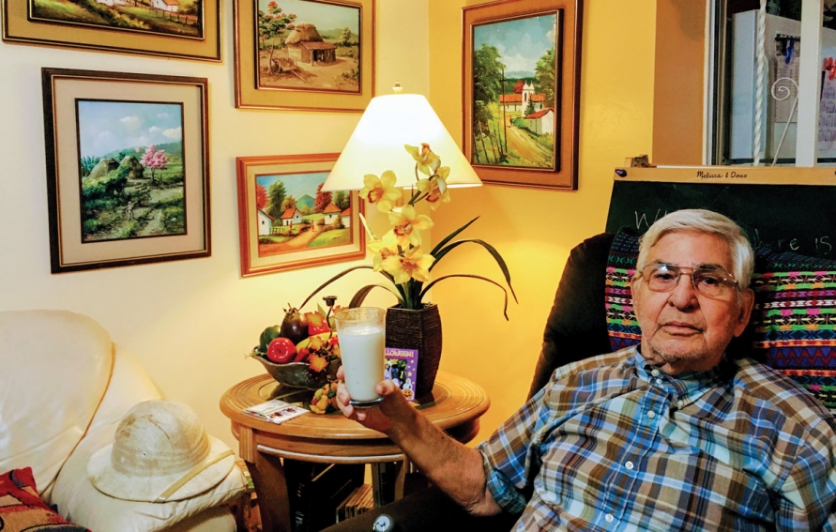Lara Farms

When it comes to the beloved mamey sapote, Lara Farms is the go-to grower. They’re also well known for a wide variety of tropical fruit trees. Brand ambassador Jorge Zaldivar talked with Julian Lara, second generation family farmer.
How they started: My parents, Pablo and Ceres, started Lara Farms back in 1980. It wasn’t always the beautiful nursery that we know today. It was a piece of land in the middle of nowhere in a place called Redland. My dad was ambitious and wanted to provide grafted mamey (Pouteria sapota) trees to a market eager to have their favorite fruit from back home. The main varieties known back then, and still today, are ‘Magaña’ and ‘Pantin’ aka ‘Key West’. He was able to hybridize two varieties of ‘Magaña’ and ‘Tazumal’ and make his own variety, the ‘Pace’– Pa (Pablo) + ce (Ceres). It’s known today as one of the finest tasting mamey varieties. Dad was able to buy what the nursery is today by going to people’s houses and grafting mamey and mango trees in people’s backyards. Eventually, he got big grafting jobs and saved his coins by doing this after his regular job during the day at Tropical Research & Education Center (TREC) in Homestead. We are always grateful to Dr. Carl Campbell for giving my dad a job at TREC.
Their philosophy: Be prepared for the worst. It’s a crazy business. You can be wiped out by a cold snap, frost or a hurricane. But at the same time, it could be very lucrative. Have fair prices and give the customer the best experience possible. And make sure they go home with the best advice.
What they sell: The list of plants is fluid but always expect us to have a great selection of rare and exotic tropical fruit trees for the South Florida climate: mamey, mango, guanabana, custard apple, sugar apple, atemoya, guava, caimito, jakfruit, sapodilla, carambola, tamarind, Spanish lime, lychee, longan, pomegranate, green sapote, avocado, black sapote, white sapote.
Find it
Communities Near You
What’s happening near you
Visit Lauderdale Food & Wine Festival returns January 13-19, 2025
Las Olas Oceanside ParkFort Lauderdale




